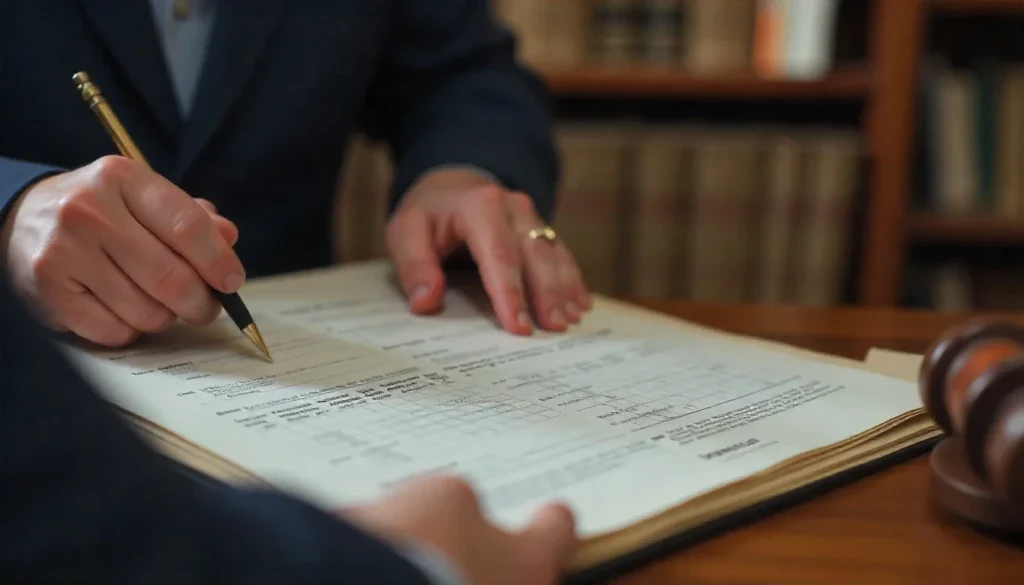Introduction
Losing a loved one is difficult, and handling their financial matters can add extra stress. One often overlooked issue is the tax on a deceased estate in NSW. It’s important to understand your responsibilities to ensure the estate is properly administered and all tax liabilities are met.
This guide covers everything you need to know, including capital gains tax on deceased estates, who is responsible for paying it, the impact of different asset types like shares and property, and the latest tax rates for 2024–25. We’ll also provide practical tips for executors and beneficiaries.
Does a Deceased Estate Pay Tax in NSW?
Yes, a deceased estate can become a separate taxpayer. In NSW, if the estate earns income after death — such as rental income, dividends, interest, or capital gains — it must lodge a tax return and may need to pay tax.
The executor or administrator is responsible for managing the estate’s tax obligations during the estate administration process.
Key points to note:
- The estate is treated as a trust for tax purposes.
- A separate Tax File Number (TFN) is required.
- Income earned must be declared annually until the estate is fully administered.
It’s essential to identify all sources of income, including:
- Rental income from properties
- Dividends from shares
- Bank interest
- Capital gains from asset sales
Capital Gains Tax (CGT) on a Deceased Estate
Capital gains tax (CGT) can apply to a deceased estate, but not immediately on all assets. Generally:
- No CGT is triggered when assets transfer to beneficiaries.
- CGT applies when an inherited asset is sold later.
Key points:
- The main residence exemption may apply if the deceased’s home is sold within two years.
- Investment properties, shares, and similar assets are subject to CGT.
- A cost base reset happens at the date of death — the asset’s market value is used for future CGT calculations.
- Special rules apply to assets acquired before 20 September 1985 (pre-CGT assets).
If a beneficiary sells an inherited property or shares, CGT is calculated using the market value at the date of death as the new cost base.
Who Pays Capital Gains Tax on a Deceased Estate?
Responsibility for CGT depends on when the asset is sold:
- If the executor sells an asset during estate administration, the estate pays CGT.
- If an asset is transferred to a beneficiary who later sells it, the beneficiary pays CGT.
It’s important to document:
- Date of death valuations.
- Costs associated with selling the asset (e.g., real estate commissions, legal fees).
- Holding periods, as these can impact CGT discounts (50% discount available if asset held for over 12 months).
Does a Deceased Estate Pay Capital Gains Tax on Shares?
Shares are a common asset held in deceased estates. CGT consequences for shares include:
- If the executor sells shares during administration, the estate reports the CGT.
- If shares are distributed to a beneficiary without sale, there is no immediate CGT, but the cost base is reset to the date of death value.
Example:
- John passes away in March 2025 owning shares worth $50,000.
- The executor distributes the shares to his daughter Mary.
- Mary later sells the shares in 2026 for $60,000.
- Mary pays CGT on the $10,000 gain.
Important considerations:
- Dividend reinvestment plans (DRPs) can complicate CGT calculations.
- Pre-CGT shares have special rules.
Tax Rates for Deceased Estates (2024–25)
Deceased estates are taxed at special rates depending on how many years have passed since death.
| Taxable Income | 1st Year | 2nd Year | 3rd Year | 4th Year+ |
|---|---|---|---|---|
| $0 – $18,200 | 0% | 0% | 0% | 0% |
| $18,201 – $45,000 | 19% | 19% | 19% | 19% |
| $45,001 – $120,000 | 32.5% | 32.5% | 32.5% | 32.5% |
| $120,001 – $180,000 | 37% | 37% | 37% | 37% |
| Over $180,000 | 45% | 45% | 45% | 45% |
Note: After three years, the estate is taxed at normal individual rates unless an extension is granted by the ATO due to complexity or delayed administration.
Common Exemptions and Concessions
Several exemptions and concessions can reduce or eliminate tax for a deceased estate:
- Main Residence Exemption: Full CGT exemption if sold within two years of death.
- Partial Main Residence Exemption: Applies if the property was partially used to produce income.
- Small Estates: Estates with very low income may not need to lodge a tax return.
- Superannuation Death Benefits: Certain benefits paid to dependents may be tax-free.
Importantly, Australia does not have an inheritance tax, but assets within a deceased estate can trigger CGT liabilities when sold.
Beneficiaries should seek professional advice to maximise available concessions and exemptions.
Probate, Estate Administration, and Tax
Executors must follow a structured process:
- Apply for probate to gain legal authority.
- Identify all assets and liabilities.
- Obtain asset valuations as at the date of death.
- Lodge a Date of Death Tax Return for income earned prior to death.
- Apply for an estate Tax File Number (TFN).
- Lodge annual estate tax returns.
- Distribute assets after all debts, taxes, and obligations are settled.
Professional advice from solicitors, accountants, and tax agents can be invaluable, especially for complex estates.
Practical Tips for Executors and Beneficiaries
Managing deceased estate tax is complex. Key tips:
- Keep detailed records: Maintain documentation for asset valuations, income received, and expenses.
- Understand CGT timing: Know whether CGT applies during estate administration or after asset distribution.
- Use available exemptions: Such as the main residence exemption or CGT discounts.
- Seek professional help early: Engage accountants or lawyers experienced in deceased estate matters.
- Lodge all necessary tax returns: Date of death returns, estate tax returns, and any amendments if errors occur.
- Be mindful of deadlines: Lodge tax returns and finalise distributions within a reasonable time frame to avoid tax complications.
- Plan asset sales strategically: Consider selling assets at optimal times to minimise CGT impacts.
Conclusion
Understanding the tax on deceased estates in NSW is crucial for executors and beneficiaries. With careful planning, knowledge of capital gains tax on deceased estates, and awareness of the 2024–25 tax rates, you can fulfil your duties correctly and minimise tax liabilities.
By addressing income tax obligations, CGT responsibilities, and utilising available concessions, you can efficiently administer an estate and honour the wishes of your loved one.
If you are unsure about any aspect of deceased estate taxation, seek professional advice early to ensure full compliance and peace of mind.


















